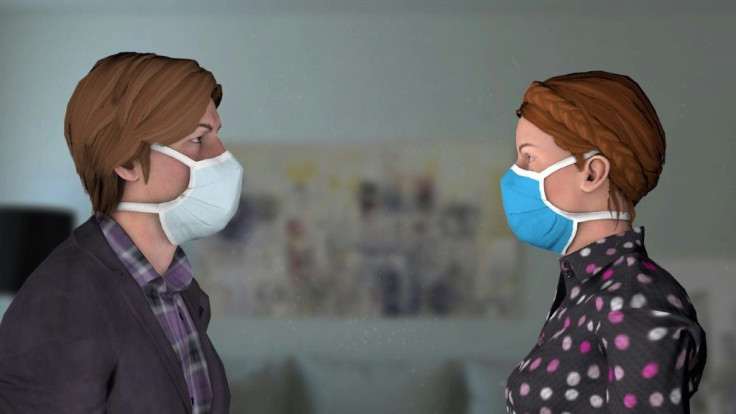How To Win Friends And Influence The COVID Curve

KEY POINTS
- If we want to persuade others to wear masks and adopt other behaviors that will help us beat this pandemic, our entreaties will have to be far more empathetic.
- Australian researchers found that when people refuse to apologize, they actually feel better about themselves and more justified in their behavior. Shaming inhibits pro-social behavior, according to a 2014 Developmental Psychology paper.
- We have to establish a relationship and a foundation of trust.
America continues to be embroiled in a culture war over mask-wearing.
Social media is the main front in that war. Search for hashtags like #Covidiot, and you'll find all manner of messages trashing people for not physical distancing, refusing to don masks in public, and holding large gatherings.
"The pandemic is not a vacation," scolded one state official. There's no shortage of photos and videos on social media shaming people at parks or beaches for standing too close together. Researchers at Yale even equated these behaviors to "science denial."
Scolding those who refuse to adhere to public health guidelines may assuage our own feelings of powerlessness in the face of an enemy we can't see. But there's little evidence that all this finger-pointing and bullying is doing much good. If we want to persuade others to wear masks and adopt other behaviors that will help us beat this pandemic, our entreaties will have to be far more empathetic.
That starts by giving people the benefit of the doubt. After all, guidance changes frequently. It was only a few months ago that public health officials claimed masks were ineffective.
So rather than assuming all non-compliers are selfish and reckless, we should presume the best. Humility isn't just good manners. It's also a smart strategy.
Shaming people makes them defensive. We all know it's hard to admit when we're wrong; it makes us feel weak and insecure. Australian researchers found that when people refuse to apologize, they actually feel better about themselves and more justified in their behavior. Shaming inhibits pro-social behavior, according to a 2014 Developmental Psychology paper.
But what about cases where the facts are not remotely in dispute -- as with conspiracy theorists who claim the pandemic is a hoax or caused by 5G cell towers? What about the quarter of Americans who'd refuse to take a coronavirus vaccine, even though widespread vaccination will be required to eradicate COVID-19?
No doubt, it can be difficult to empathize with people who deny reality, especially when that denial puts others' lives at risk. It's much easier to invoke authority, to retort "because science" to our opponents.
But when we bully Americans to defer to experts, we're only further entrenching people in their views. The reasons are rooted in basic human psychology.
Confirmation bias predisposes us to accept facts that fit our prior beliefs. That bias is amplified and exacerbated by what psychologists call "worldview backfire effect." When people are strongly fixed in their beliefs, sharing evidence that threatens their worldview can actually reinforce their beliefs.
In one study, anti-vaxxers were shown evidence debunking the link between vaccination and autism. They responded by opposing vaccination even more strongly.
This doesn't mean persuasion is impossible. But when we're trying to persuade, we can't lead with facts. Instead, we must lead with empathy.
First, we have to establish a relationship and a foundation of trust. That can be as simple as listening to a person's concerns. When researchers from Washington University in St. Louis asked physicians to engage in respectful conversation with anti-vaccination parents, they found the parents were much more open to evidence promoting vaccines. By the end of the experiment, half the initially hesitant parents agreed to vaccinate.
Shaming only entrenches bad behavior. A more empathetic approach would help public health experts win friends and smash the COVID curve.
Elaine Hanh Le, M.D., is the Chief Medical Officer of Healthline Media (www.healthline.com).
© Copyright IBTimes 2024. All rights reserved.





















